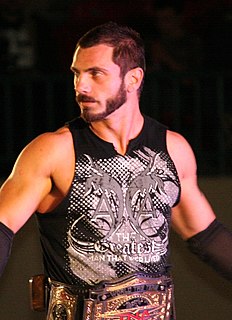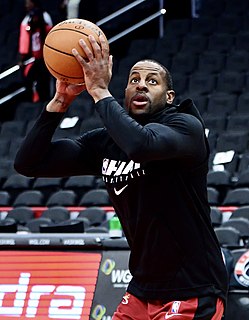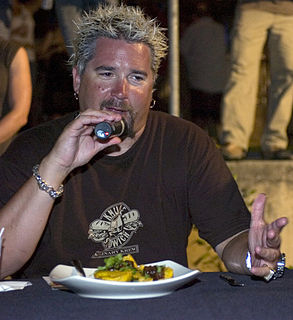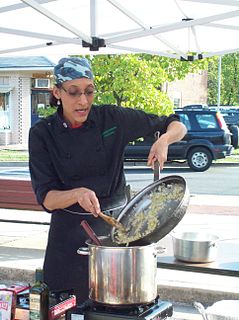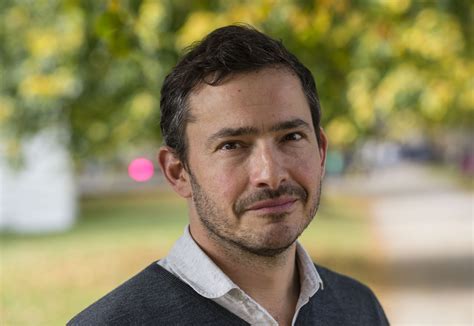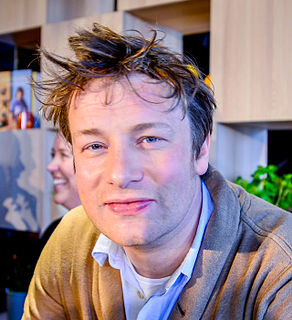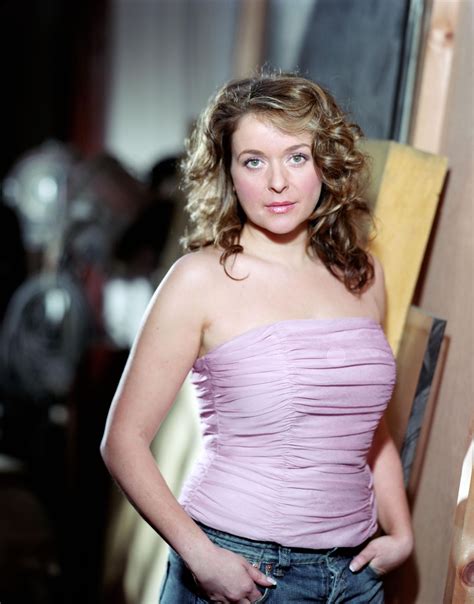A Quote by Jack Johnson
We get to go out into the schools and work with the kids on connecting them to their food at a young age, to actually see where their food is coming from, to see that their food is coming from the earth and not just from a supermarket. Once they make that connection, they can start to build upon that.
Related Quotes
I think that once I started connecting dots of where my food was coming from and the reality of that, as opposed to maybe what you think it is as a little kid, and the realities of how my food was getting to my plate and what the real effects of that are. When I started connecting those dots, I couldn't disconnect them.
We kind of know that food is necessary to survive. But our ways of connecting with food have been, in many ways, taken over by capitalism - certainly taken over by the influence large corporations have on the way that we eat and the way that we think about food. That's why kids these days are more prepared to take nutritional advice from Ronald McDonald than they are from their parents or their teachers or from scientists. And particularly in urban areas, you'll see kids who honestly believe tomatoes come from the supermarket rather than from a plant.
There's also a growing trend toward having gardens in schools to literally show kids where food comes from by having them grow and prepare their own food. There's also a movement that's bringing farmers into schools and creating relationships between local farms and local cafeterias, so that instead of frozen mystery meat, you have fresh produce that's coming from the area that has a name and a face associated with it.
Now, everyone is excited about food - cooking, growing, learning - watching it on TV, buying books, trying things at home. It's the greatest time ever to be in food - which is why it's so hard to see so many people still relying on processed food. I am hoping that we had a generational blip - and that these young people will continue on and pass on their love of food and creativity to the next generation of kids.
Some kids have never seen what a real tomato looks like off the vine. They don't know where a cucumber comes from. And that really affects the way they view food. So a garden helps them really get their hands dirty, literally, and understand the whole process of where their food comes from. And I wanted them to see just how challenging and rewarding it is to grow your own food, so that they would better understand what our farmers are doing every single day across this country and have an appreciation for ... that American tradition of growing our own food and feeding ourselves.
A natural historian is somebody who looks at something in terms of its relationship to the rest of the natural world. You look at things ecologically. When you see a cow on a feedlot, you don't just see a cow; you see a cow that is eating certain food. You follow that food and that food takes you back to a corn field.
When I look in the fridge, I see groceries, but I don't see food. My stomach growls; but there is no appetite. Appetite and hunger are different. Appetite is the mental prompting that kicks the auto-response into drive so you actually reach out, take the food, put it in your mouth, chew, and swallow. I learned this in my first psychology course. Eating isn't just a physical need; it starts in the mind, generating hunger, which then should trigger the body to ingest food. I have no sparks between these plugs.

